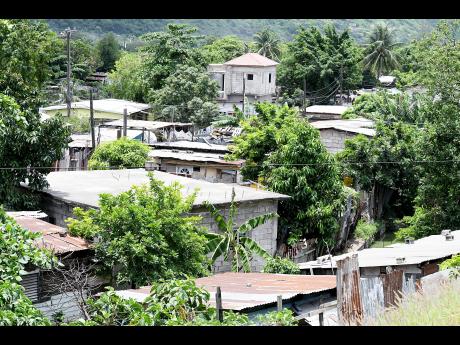Serial squatters - Living in squatting communities while offering for rent houses provided to them by State agencies
Some squatters who were relocated by State agencies to formal communities, have since rented out the properties they were given and have gone back to live in the squatter settlements.
Senior director for housing and land administration at the Ministry of Job Creation and Economic Growth, Luthrine Scarlett, said this was the situation with some of those who benefited from the Relocation 2000 project.
"So you would relocate persons, put them in a nicely planned area and they rent the place and go back to where they are coming from," said Scarlett, who explained that these individuals would have been relocated because of the hazards and the risks of where they lived or because the area was environmentally unsafe.
The Relocation 2000 project was introduced by former Prime Minister P.J. Patterson in 1999. It was led by the National Housing Trust (NHT) and was aimed at providing subsidised houses with amenities to persons in inner-city communities, with its focus being on persons living in squatter settlements.
While Scarlett did not list the communities where the squatters have returned to, she believes this is proof that the shortage of low-income housing is not the only factor fuelling squatting. A rapid assessment conducted in 2008 showed that about 20 per cent of the population or 500,000 Jamaicans were squatters.
"You will have persons, we have found time and time again, who are living in squatter communities, who really don't have to live there; who have resources to buy houses that you and I could never dream of affording," said Scarlett.
"So in a lot of the cases, it is not need," she told The Sunday Gleaner during an interview last Wednesday.
Scarlett, who has responsibility for the Government's Squatter Management Unit, said the issue of squatting is not very clear-cut. She finds that people become squatters for varying reasons.
"For many persons, unfortunately, you have this mentality of not paying. So why are you then going to go into a formal area where you are going to have to pay for your water, for your light, for your property when you can get it free?
"For some persons, it is the security that the area provides. You will find that a lot of persons who, for example, are in gangs or illegal activities and will then have a mark on their back, you will find that they will stay in those areas where they are safe, rather than going somewhere formal," added Scarlett.
Established overnight
She said that the unit and its partners have to be constantly monitoring communities.
But director of the Squatter Management Unit, Basil Forsythe, has found that these communities are sometimes established basically overnight.
He pointed to one case where nearly 500 persons established informal settlements on a particular piece of land in just a matter of days.
"A lot of these people live somewhere. You couldn't have nearly 500 people overnight just appear like that and they weren't living somewhere," said Forsythe.
"Sometimes they feel that when they go to these areas, then the Government would come in eventually and regularise and they would have an additional piece of real estate somewhere," he argued.
For Scarlett, addressing the squatting issue is an urgent matter for Jamaica.
"Squatting has a number of spin-offs from it, many of which are very negative," she said.
"So you would have your environmental issues, because you have a lot of squatting along hillsides, gully banks, that sort of thing. You also have issues relating to crime, because based on how squatting communities are normally laid out, for the most part, they are not properly laid out, policing them becomes a challenge, and then they can become havens for a lot of illegal activities," said Scarlett.


